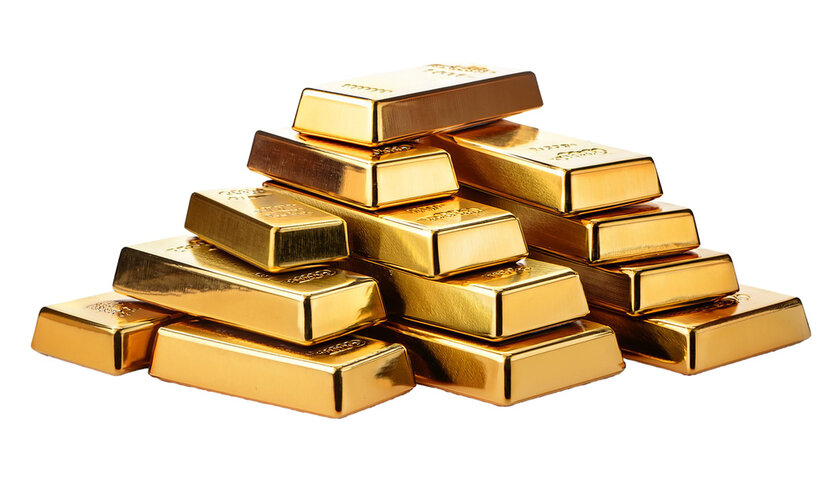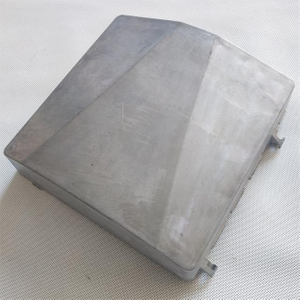Gold is not magnetic in its pure form. Classified as diamagnetic, it weakly repels magnets and cannot be magnetized by electrical currents. This behavior is only observable under controlled laboratory conditions.
However, recent research reveals intriguing properties at the nanoscale. Tiny clusters of gold atoms exhibit paramagnetic behavior, acting like miniature magnets. This phenomenon doesn't occur naturally due to gold's atomic density. Additionally, heat can enhance these hidden magnetic properties.
While gold remains non-magnetic in everyday scenarios, its behavior at extreme scales and conditions offers fascinating insights into the complex nature of magnetism in materials.

Gold's Magnetic Properties
"Is.gold.magnetic" and "is gold magnetic or not" are among the most frequently searched questions about gold's properties. Gold (symbol Au, atomic number 79) has fascinated humanity for millennia with its lustrous yellow hue and remarkable properties. When it comes to magnetism and gold, many wonder "does gold attract magnet" or "is.gold.magnetic" - the answer lies in its unique atomic structure.
Basic Answer
For those asking "does gold stick to magnets" or "is gold magnetic yes or no," here's the simple answer: pure gold is not magnetic. It neither attracts nor is attracted to magnets. Whether you're wondering about "magnet gold" interactions or if "will a magnet pick up gold," understanding gold's diamagnetic nature is key to comprehending its behavior.
Scientific Explanation of Gold's Magnetism
Understanding "gold magnetism" requires looking at its atomic structure. When people ask "will gold stick to a magnet" or "can magnets pick up gold," the answer lies in gold's electronic configuration.
Atomic Structure of Gold
Gold's unique magnetic behavior stems from its atomic structure. With an electron configuration of [Xe] 4f⊃1;⁴ 5d⊃1;⁰ 6s⊃1;, gold has a completely filled 5d subshell and a single electron in the 6s orbital. This configuration results in no unpaired electrons, which are typically responsible for magnetic properties in elements.
| Electron Shell | Number of Electrons |
| K (1s) | 2 |
| L (2s, 2p) | 8 |
| M (3s, 3p, 3d) | 18 |
| N (4s, 4p, 4d, 4f) | 32 |
| O (5s, 5p, 5d) | 18 |
| P (6s) | 1 |
Diamagnetism in Gold
Diamagnetism, the property exhibited by gold, is a fundamental form of magnetism that all materials possess to some degree. In diamagnetic materials, the magnetic fields produced by orbital electron motion cancel out, resulting in a very weak repulsion to external magnetic fields.
According to research published in the Journal of Physical Chemistry C (2008), gold's volume magnetic susceptibility at 20°C is approximately -3.44 × 10⁻⁵, indicating its diamagnetic nature. This negative value signifies that gold weakly repels magnetic fields, contrary to the attraction seen in ferromagnetic materials.
Behavior in Strong Magnetic Fields
While gold does not ordinarily interact with magnets, it can exhibit interesting behavior under extreme conditions. In 2014, researchers at Radboud University Nijmegen demonstrated that gold can be levitated in a strong magnetic field due to its diamagnetic properties. This experiment required a magnetic field strength of about 16 Tesla, far stronger than typical household magnets (which are usually less than 1 Tesla).
Factors Affecting Gold's Magnetic Properties
Purity of Gold
The purity of gold significantly influences its magnetic behavior. Pure gold (24 karat) maintains its diamagnetic properties consistently. However, lower karat gold introduces other elements that can alter its magnetic response.
| Karat | Gold Content | Typical Alloying Metals |
| 24K | 99.9% | None (pure gold) |
| 22K | 91.7% | Silver, Copper |
| 18K | 75.0% | Silver, Copper, Zinc |
| 14K | 58.3% | Silver, Copper, Zinc, Nickel |
| 10K | 41.7% | Silver, Copper, Zinc, Nickel |
Gold Alloys and Magnetism
Gold alloys, commonly used in jewelry and industrial applications, can exhibit varied magnetic properties depending on their composition. For instance, some white gold alloys containing nickel may show slight magnetic attraction. A study published in the Gold Bulletin (2014) found that certain gold-iron alloys can exhibit ferromagnetic properties at room temperature when the iron content exceeds 15 atomic percent.
Nano-scale Behavior
Recent advancements in nanotechnology have revealed surprising magnetic properties in gold nanoparticles. A 2004 study published in Physical Review Letters demonstrated that gold nanoparticles smaller than 2 nanometers in diameter can exhibit ferromagnetic behavior at temperatures below 10 Kelvin. This discovery opens up new possibilities for gold in fields such as data storage and quantum computing.
Testing Gold's Magnetism
Magnet Test for Gold
While not definitive, a simple magnet test can provide initial insights into an item's gold content. Pure gold should not react to a magnet. However, this test has limitations and should not be relied upon exclusively for authentication.
Interpreting Magnetic Attraction in Gold Items
If a gold item shows magnetic attraction, it may indicate:
Presence of ferromagnetic impurities
Gold plating over a magnetic base metal
An alloy with significant non-gold content
It's crucial to note that some authentic gold alloys may show slight magnetic properties, while some counterfeit items might be non-magnetic.
Practical Implications
Jewelry Industry
The jewelry industry leverages gold's non-magnetic nature in various ways. According to the World Gold Council, about 50% of global gold demand comes from jewelry. Understanding the magnetic properties of different gold alloys is crucial for quality control and authentication in this industry.
Gold Verification
Professional gold verification involves multiple techniques:
| Method | Principle | Accuracy |
| XRF Analysis | Measures characteristic X-rays | High |
| Fire Assay | Chemical separation and weighing | Very High |
| Specific Gravity | Density measurement | Moderate |
| Acid Testing | Chemical reaction observation | Moderate |
| Magnetic Testing | Magnetic response | Low (supplementary) |
Applications in Technology
Gold's unique properties, including its diamagnetic nature, find applications in various technological fields:
Electronics: Gold's non-magnetic nature makes it ideal for components in magnetic field-sensitive devices.
Medical Imaging: Gold nanoparticles are being explored as contrast agents for magnetic resonance imaging (MRI).
Quantum Computing: The unusual magnetic properties of gold nanoparticles at low temperatures could potentially be harnessed for quantum bit (qubit) operations.
Conclusion
Gold's magnetic properties, or lack thereof, stem from its unique atomic structure. Its diamagnetic nature sets it apart from many other metals, contributing to its special place in jewelry, technology, and scientific research. As we continue to explore gold at the nanoscale and in extreme conditions, we may uncover new facets of its interaction with magnetic fields, potentially revolutionizing its use in future technologies.
Frequently Asked Questions: Gold and Magnetism
Here are seven commonly asked questions about gold's magnetic properties, along with clear and concise answers:
Q: Is pure gold magnetic?
No, pure gold is not magnetic. It's classified as a diamagnetic material, which means it's weakly repelled by magnetic fields.
Q: Can a magnet stick to gold jewelry?
Generally, no. If a magnet sticks to your "gold" jewelry, it likely contains significant amounts of other metals or may not be gold at all.
Q: Why isn't gold magnetic?
Gold isn't magnetic because of its atomic structure. It has no unpaired electrons in its outer shell, which are necessary for ferromagnetic behavior.
Q: Can gold become magnetic under any circumstances?
Yes, under extreme conditions. Gold nanoparticles can exhibit magnetic properties at very low temperatures (below 10 Kelvin) or in the presence of extremely strong magnetic fields.
Q: Does the karat of gold affect its magnetic properties?
Yes, indirectly. Lower karat gold contains more non-gold metals, which might introduce slight magnetic properties depending on the alloying metals used.
Q: Is the magnet test a reliable way to determine if something is real gold?
No, it's not entirely reliable. While it can indicate the presence of magnetic metals, some fake gold items are also non-magnetic. It should be used in conjunction with other testing methods.
Q: Are there any practical applications of gold's non-magnetic nature?
Yes. Gold's non-magnetic property makes it useful in electronics, especially in devices sensitive to magnetic interference. It's also valuable in medical implants and certain scientific instruments.
Q: Is real gold magnetic?
No, pure gold is never magnetic. If your gold item attracts to a magnet, it might not be genuine gold.
Q: Does gold stick to magnets?
No, authentic gold does not stick to magnets. This is true for all purities of pure gold.
Q: Is 14 karat gold magnetic?
Generally, 14k gold should not be magnetic. However, some 14k white gold alloys containing nickel might show slight magnetic properties.
Q: Does 10k gold stick to a magnet?
10k gold shouldn't stick to a magnet, though it contains more non-gold metals than higher karat gold. Any strong magnetic attraction suggests the piece might not be genuine.
Q: Are gold rings magnetic?
Genuine gold rings should not be magnetic. If your gold ring attracts to a magnet, it might be gold-plated or made of different materials.
Q: Is white gold magnetic?
Most white gold is not magnetic, but some alloys containing nickel might show slight magnetic properties.
















